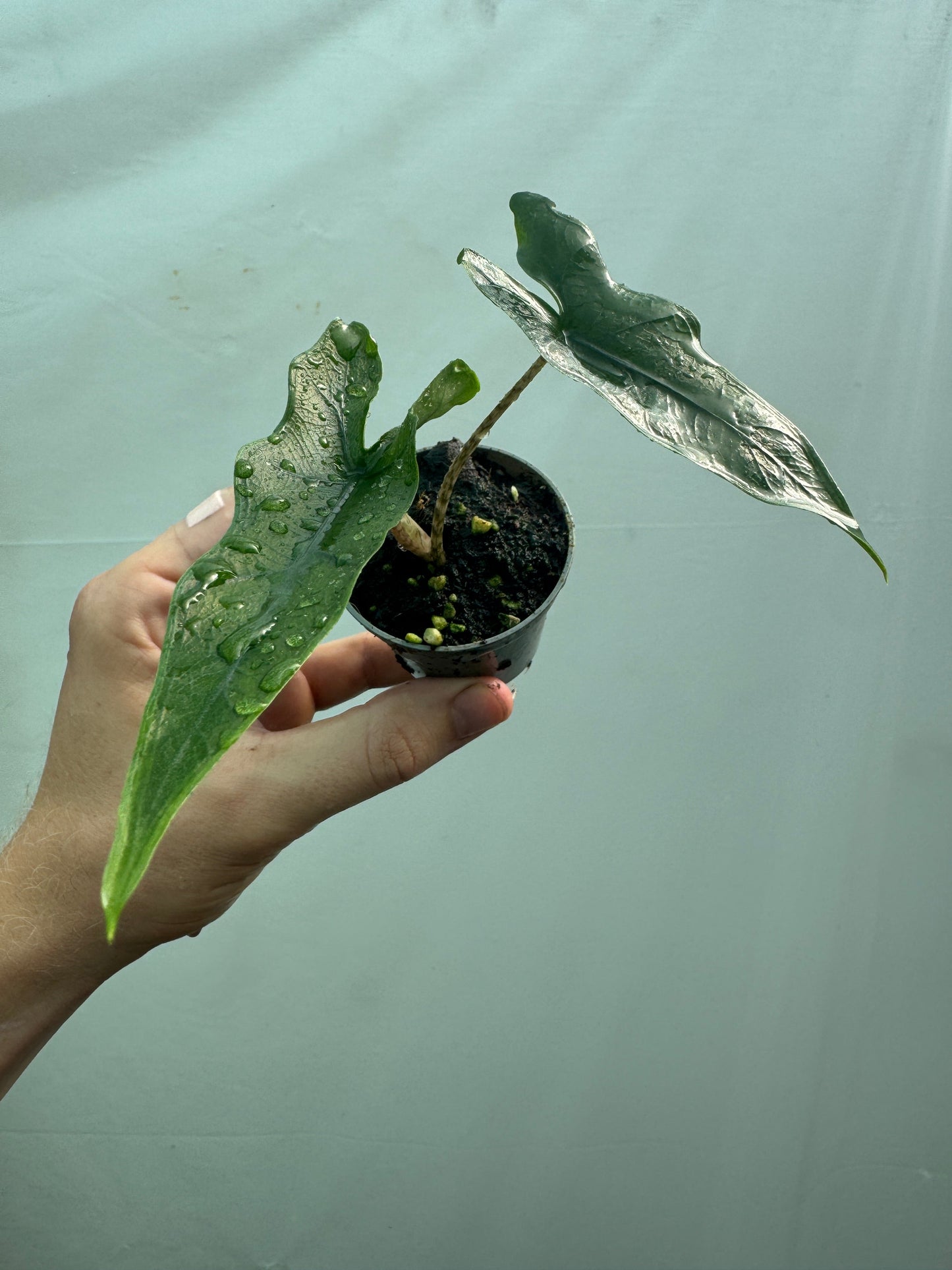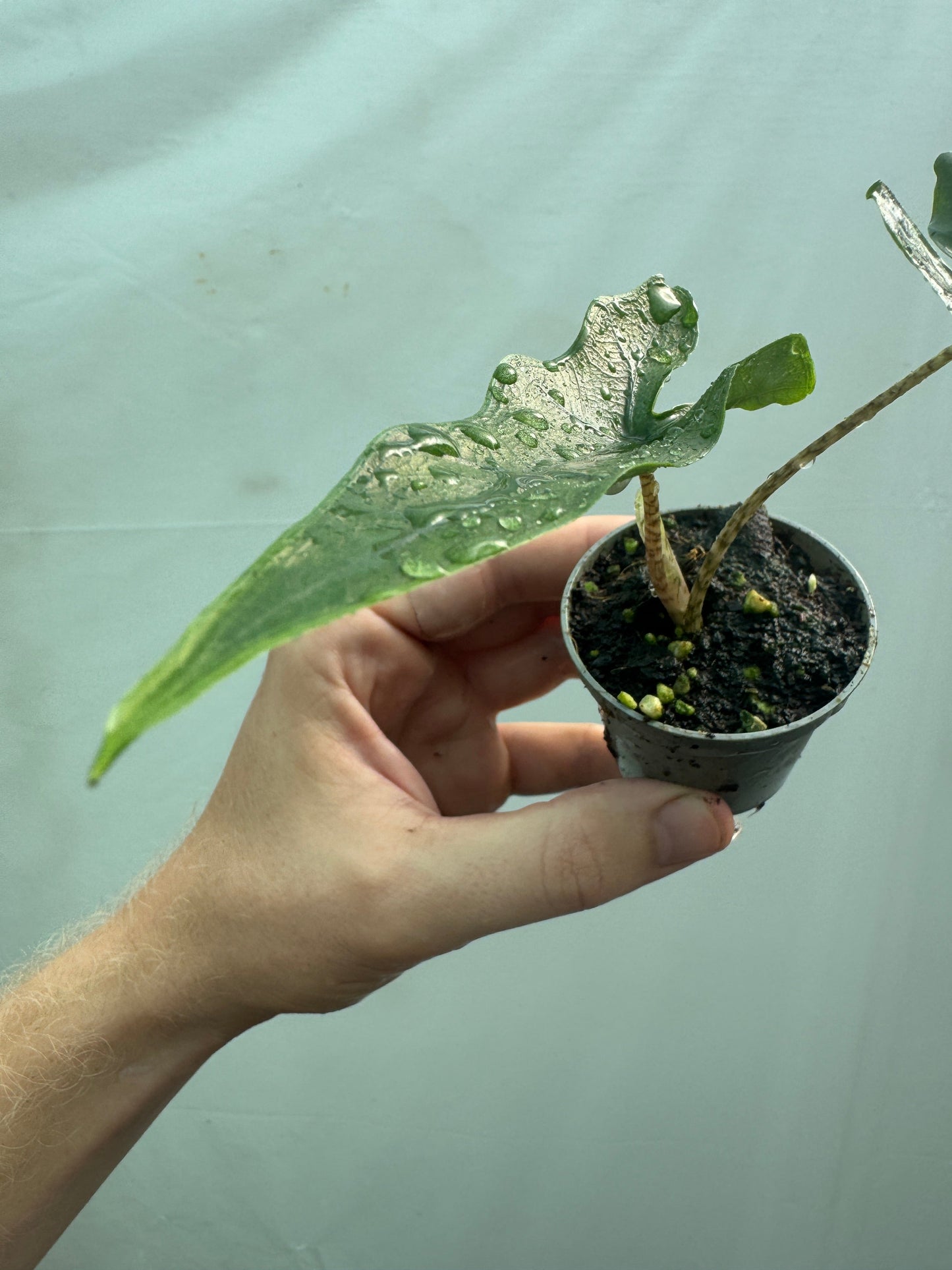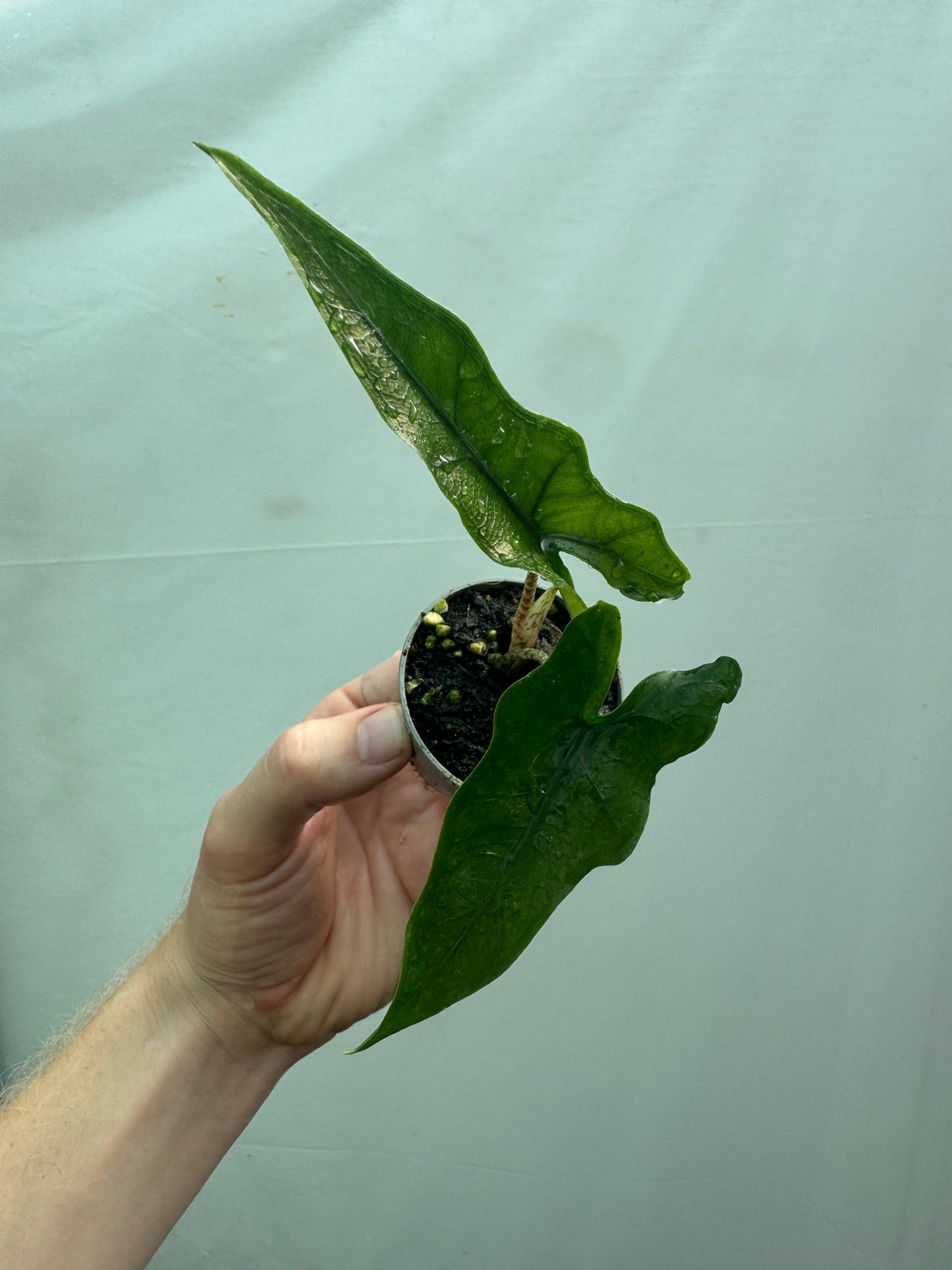Plantthatplant
Alocasia sp. sabrina/Tandurusa Narrow
Alocasia sp. sabrina/Tandurusa Narrow
No se pudo cargar la disponibilidad de retiro
About
About
Specification
Specification
• Scientific name: Alocasia sp. (Sulawesi) ‘Sabrina Narrow’
• Common names: Alocasia Tandurusa, Alocasia Jacklyn Narrow
• Origin: Sulawesi, Indonesia (humid, shaded tropical forests)
• Growth habit: Upright with narrow, deeply lobed foliage
• Size: Typically 30–60 cm tall indoors; up to 80 cm in ideal conditions
• Leaf characteristics: Deep green, narrow, deeply cut with defined venation
Care guide
Care guide
Light Requirements
• Prefers bright, indirect light
• Avoid direct midday sun to prevent leaf burn
• Tolerates filtered light but slows growth in low-light environments
⸻
Watering
• Water when the top 2–3 cm (about 1 inch) of soil feels dry
• Maintain lightly moist, but never soggy soil
• Reduce frequency in winter; typically water every 7–10 days during growing season
• Ensure pot has excellent drainage to avoid root rot
⸻
Temperature and Humidity
• Ideal temperature: 20–28°C
• Should not be exposed to temperatures below 16°C
• Requires high humidity: 60–75% is optimal
• Use a humidity tray, group with other plants, or a humidifier in drier climates
⸻
Soil and Repotting
• Needs a well-draining, airy mix such as:
• 50% coco coir or peat
• 25% perlite
• 25% orchid bark or pumice
• Repot every 12–24 months into a pot that is 2–3 cm wider than the current one
• Do not bury the rhizome too deep; keep it slightly exposed at the surface
⸻
Fertilization
• Feed with a balanced liquid fertilizer every 4–6 weeks during spring and summer
• Avoid feeding in winter unless under grow lights
• Alternatively, use a slow-release fertilizer at the start of the growing season
⸻
Common Problems
• Yellowing leaves: Often due to overwatering
• Brown edges: Usually caused by low humidity or inconsistent watering
• Pests: Watch for spider mites, aphids, and mealybugs
• Treat early with neem oil or insecticidal soap
• May go dormant if exposed to cold or low light, shedding leaves temporarily
⸻
Growth Behavior
• Grows from rhizomes; may produce offsets (“pups”) from the base
• Growth slows down significantly in winter
• Leaf drop during dormancy is normal; regrowth occurs in spring
Share






